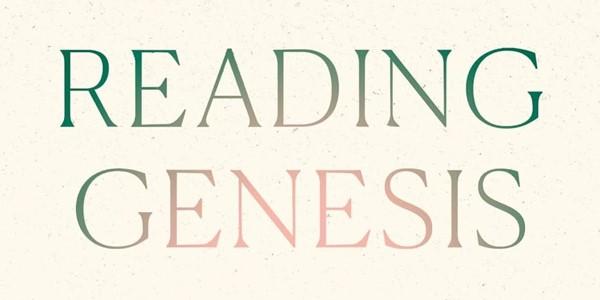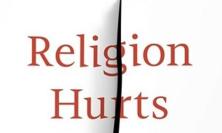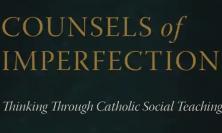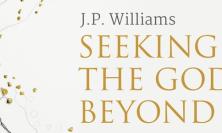Hugh Brody’s extraordinary book, The Other Side of Eden is about hunter-gatherers – Eskimos, or Inuit – in northern Canada.[i] Chapter 2, simply called ‘Creation’, deals with the early part of the book of Genesis. In the 1940s/50s, Brody learnt Hebrew in great wonder in a chedar and marvelled at the language. Much later, while doing fieldwork in the Arctic, he came to see that Genesis doesn’t work for hunter-gatherers – it’s a charter for farmers, a myth for pastoralists and agriculturalists. Both the experience and interests of hunter-gatherers were omitted. What we bring to our ‘reading’ of Genesis matters, and it is a fine question with which to work. Brody’s perceptive and provocative take on Genesis can give a helpful jolt to our imaginations and to what we might receive from reading, and how we might go about it.
Best known for her novels, particularly Gilead, Marilynne Robinson is also a considerable essayist. Both essays and novels consider religious and indeed theological issues. It’s a wonderful oeuvre. Her latest offering, Reading Genesis, is neither a novel nor a collection of essays, but a full-length book. It usefully includes a translation of the book of Genesis and is a fine invitation to read Genesis. Here ‘reading’ matters… it involves attentiveness, awareness, noticing, imagination, freedom – and hope.
Trees and creation
The creation stories in Genesis may well be written with Babylonian creation myths in mind. But Genesis does not picture ‘gods’ who fight among themselves and are oddly dependent on human beings for their own needs and divine wellbeing. Very different pictures of ‘God’ are at work in Genesis. And Robinson picks out wonderful specifics. In the second account of creation, God makes ‘every tree that is pleasant to the sight’ (Genesis 2:9) and, she writes: ‘God as the creator of beauty intends it for us to see and enjoy… That God… has and enjoys this kind of perception gives us an insight into the meaning of our being made in His image.’ There is a remarkable shift in the sense of both who God is and who we are. It’s a verse that, for Robinson, comes with a felt and instinctive invitation. The reader is drawn into an attentive and creative silence. We are part of and can share in God’s delight at creation.
The second account of creation mentions two trees, the forbidden ‘Tree of Knowledge of Good and Evil’ and the unforbidden ‘Tree of Life’ – about the latter, nothing is said. Robinson points out that when Adam and Eve eat the forbidden fruit it is the ground that is cursed – it will be difficult to cultivate – but not the guilty pair. The Fall, or ‘fallenness’, is ‘what we experience as choice or character’. Hunter-gatherers could agree. It is amusing and perhaps evocative that the symbol of a well-known make of computers is an apple with a bite taken out of it. Robinson seems well aware that neither doctrine, nor orthodoxy or supposed revelation, should corral our reading. Clearly, revelation does not do away with mystery.
Sacrifice and the mark of Cain
Outside Eden, Eve gives birth to Cain and Abel. Cain, jealous of Abel’s accepted sacrifice, murders Abel. God puts a mark on Cain. This is not to stigmatise him but to protect him from vengeance. As Robinson says of this mark: ‘For all we know it could have made him disarmingly beautiful’. Indeed Cain goes on to have a family and to found a city. The story was always about Cain rather than ‘sacrifice’, and so about how God resolutely stays with humankind.
What we discover a book to be about is an important element in reading. Robinson reads about the sacrifice that didn’t happen (Genesis 22:1-19). God tells Abraham to sacrifice his only son, Isaac. The pair set out in a narrative told with mounting tensions. If it’s about Abraham’s obedience, we might marvel at Abraham and wonder about God. For Robinson, it’s a narrative told against child sacrifice – after all, Isaac is not sacrificed. Indeed, this does seem to be true. But there may well be more to say. Names matter and in the Genesis narrative there are different names for God – ‘Elohim’ orders the sacrifice and ‘The Lord’ stops it. So the passage may also be a story about the kind of ‘god’ God is.[ii] This too may give the reader pause to take in a new sense of God. It’s prayerful, and the prayer may well involve the gift of newness.
Babel, floods and repentance
Names matter; language matters. The amusing story of Babel (Genesis 11:1-9) is about a time when everyone spoke a single language, and some tried to make a name for themselves by building a tower which would reach heaven. So the Lord confuses their language and a polyglot world emerges in mutual incomprehension. The city, no doubt including its tower, is never built. For Robinson this is ‘an etiology about the diversity of languages’, ‘an admiring joke at the expense of the Babylonians and their wonderful constructions’ – but mainly ‘a statement about God’s relationship with His all too brilliant creatures’. Robinson does make some helpful journeys into other scriptural books, including the New Testament. Here it seems good to add the account of Pentecost (Acts 2:1-13). Far from abolishing the Babel cacophony, Pentecost allows everyone to hear the Spirit in their own language. There is no return to a single language – no imperial or indeed canonical tongue is established. All languages are valued, and the Babel confusion is not abolished but creatively relativised. This contrasts strongly with the early Inuit (and Indian) experience in Canada of the effectively compulsory residential schools, now no more, where indigenous languages were forbidden and English was compulsory. Brody’s hunter-gatherers would have appreciated the narrative in Acts.
Robinson is well aware that Genesis ‘borrows’ creatively from Mesopotamian literature – not only about creation, but also accounts of a flood. However, the borrowing carefully re-shapes a narrative where the gods are themselves afraid of the flood they have unleashed. In Robinson’s account of the Genesis flood, God preserves Noah and co. in the ark – and when the flood recedes, God repents of the divine destruction caused. The rainbow emerges as a sign that God will never flood the earth again. There’s an epic difference between the Babylonian gods and God as envisaged in Genesis. Once again, our reading can alter our sense of God.
Joseph’s saga
The story of Joseph occupies chapters 37–50 in Genesis, except for chapters 38 and 49. For Robinson, Joseph is not uniformly admirable. At the age of seventeen he is ‘officious, bringing bad reports about his bothers to their father… currying favor with authority, antagonizing his peers’. His brothers imprison Joseph in a pit and move away. Eventually Joseph is sold off – not by his brothers – and becomes a slave in Egypt. There he is imprisoned, escapes from prison and rises to a position of power in which he laboriously builds good family relations, and feeds the Egyptians in a time of famine. But, as Robinson puts it, Joseph feeds the Egyptians with produce he has bought from them and now sells back to them at a handsome profit. Thus Joseph ironically enslaves the Egyptians. The Exodus seems a long way off…
At an interlude in the Joseph story (chapter 38), Robinson remarks that ‘sacred history unfolds in these morally confounding events as surely as it does in the saga of Joseph’. Indeed ‘saga’ is a good and rewarding word here. For John Barton the ‘saga style’ (as in the Icelandic sagas) is ‘plain and laconic’, and little is said ‘about the emotions or the appearance of the characters’. Sometimes we are left to ‘infer’ whether God approves or disapproves.[iii] This fits well with Robinson’s way of reading the Joseph story.
Last words
Reading Genesis comes without any division into chapters. Indeed, it has no headings. This might challenge our ‘reading’, but it can be simply irritating. Certainly ‘chapter and verse’ are very helpful – and indeed late – additions to the original Scripture texts. The translation of Genesis given at the end of the book is carefully announced as the King James Version. No doubt the tone of a significant and classic prose translation could help us pause over our ‘reading’… But I would have preferred the Revised Standard Version, the New Revised Standard Version – or the Revised New Jerusalem Bible. Not only have translations improved since the seventeenth century, but spoken and written English have changed.
Throughout Reading Genesis there are several short and illuminating comments, which can challenge and change the shape and colour of our ‘reading’. For Robinson, ‘providence’ is a difficult word, notably so when linked with ‘predestination’. A better candidate is ‘grace’, even if, as she wryly points out: ‘Grace, being apart from the calculus of deserving, is often suspect.’ Nevertheless, what happens for Noah ‘is not forgiveness for any single offense but grace’. There are so many ways in which ‘the faithfulness of God is manifest among the world of fallen humankind’. As Robinson wrote earlier: ‘Grace is gracious – etymology is a beautiful thing’. Certainly, Reading Genesis is an encouragement to be attentive to how we read. And hunter-gatherers might agree.
[i] Hugh Brody, The Other Side of Eden: Hunter-Gatherers, Farmers and the Shaping of the World (Faber and Faber, 2001), pp. 65–101. There is a stirring account by a Catholic missionary priest, Raymond de Coccola OMI (born in Corsica in 1912) who worked in the Central Canadian Arctic from 1937 to 1949: Raymond de Coccola & Paul King, The Incredible Eskimo: Life Among the Barren Land Eskimo (Hancock House, 1989). I recall it was first published by OUP with the happier title Ayorama (roughly, ‘that’s the way it is’). An Inuit lady on Victoria Island told me: ‘It says truly how we should live’.
[ii] See Michael Kirwan, Discovering Girard (DLT, 2004), pp. 73-74. Interestingly footnote a to Psalm 91 (Hebrew numbering) in the Revised New Jerusalem Bible points out that there are four different names for ‘God’ in the first two verses.
[iii] See John Barton, A History of the Bible: The Book and Its Faiths (Allen Lane, 2019), pp. 39ff.






